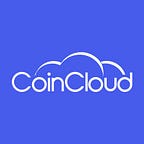What is Bitcoin Cash?
A Deep Dive into Bitcoin’s Little Brother, Bitcoin Cash
To understand Bitcoin Cash, you first have to understand Bitcoin, because Bitcoin is the foundation of Bitcoin Cash, and it’s the small details that separate the two of them.
What is Bitcoin?
If you don’t already know, Bitcoin is a decentralized digital currency system recorded on a public ledger called a blockchain. It was first created in 2008 by pseudonymous programmer Satoshi Nakamoto. Over the following years, Bitcoin became increasingly accepted amongst investors and technology enthusiasts. With its rise in popularity, people began to question whether Bitcoin was structured to support such largescale usage.
What is Blockchain?
So why would the increased adoption of Bitcoin be a problem? Understanding the theory surrounding this issue first requires you to understand blockchain. Put simply, a blockchain is a collection of “blocks,” and a block is something like a box that stores information. Each block is entirely unique, and stores its own information about transactions that have been made with cryptocurrency. These blocks are public, and anyone can view them.
Blockchain and Scalability
Now that we’ve established how blockchain works, let’s look at why it’s relevant to the issue of scalability.
When scalability was identified as a problem, each block was sized at 1MB. While this size technically works, the massive increase in Bitcoin users made these blocks quickly become full. Ultimately, this led to people in the Bitcoin community becoming concerned about the reliability of transactions and their increase in cost.
So many blocks were filling up at such a high rate that transaction confirmation took longer and left users more vulnerable to attack. To speed up this process, users would have to pay higher transaction fees. Obviously, people complained about this.
Two Answers to One Problem
Two general groups formed in response, each with a different solution to the scaling issue:
- One group wanted to keep the block size at 1MB and solve the problem by developing new technology with a different approach to blockchain.
- Another group thought the solution would be to simply increase the size of blocks so they didn’t become full as quickly.
The second group eventually took action, and in 2017, Bitcoin-ABC developers created a fork of the Bitcoin blockchain with 8MB blocks. This fork of Bitcoin is Bitcoin Cash.
Making each block larger proved to be a fairly effective solution to the issues rising as Bitcoin’s use also rose. The increase in size lowered transaction costs and made them more reliable. Since the original fork, Bitcoin Cash’s blocks have been upgraded even further in size, going all the way up to 32MB.
The faster, less expensive process makes Bitcoin Cash more suited to everyday transactions like buying a cup of coffee or a pack of gum. Most retailers don’t want to wait for Bitcoin transactions to go through before they know if they received payment for products and services.
This doesn’t necessarily make Bitcoin any less reliable than Bitcoin Cash, although many will argue for one or the other. Bitcoin Cash is still a fairly new cryptocurrency in comparison to Bitcoin, meaning it still has time for any possible flaws to be exposed. But for the time being, many crypto-connoisseurs see it as a perfect solution to Bitcoin issues in the past.
You can buy and sell both at Coin Cloud Bitcoin ATMs, as well as in the Coin Cloud Wallet app.
What is Coin Cloud?
Founded in 2014 in Las Vegas, Nevada, Coin Cloud is the world’s leading digital currency machine (DCM) company. With over 1,600 locations nationwide, in 47 states and Brazil, Coin Cloud operates the world’s largest and fastest-growing network of 100% two-way DCMs, a more advanced version of the Bitcoin ATM. Every Coin Cloud DCM empowers you to quickly and easily buy and sell 30+ virtual currency options with cash. You can find your nearest Coin Cloud DCM here.
